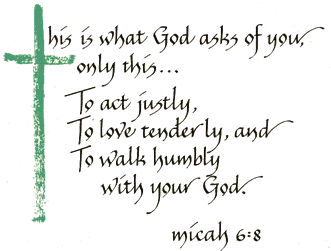catholicPittsburgh.org is the place for information, news, commentary, reflections and community building among the people of God who are renewing the Catholic Church in Western Pennsylvania.
More about us
Welcome ...
Partnering Groups
The following organizations are partners with catholicPittsburgh.org:
Did You Know - How We Change
Sixth in a series by John Houk
There are some things our Church believes that you will not find in our Catechism.
The October, 2005 Synod on the Eucharist has come to a close. Some 250 bishops from around the world gathered in Rome to deliberate on our central act of worship. One of the topics under discussion was the reception of Communion by remarried Catholics. The rules for those who have remarried without an annulment exclude them from Communion. After deliberation the world’s bishops have apparently retained this rule because remarried Catholics (to quote one bishop) find themselves in a situation that "objectively contrasts with God’s law". The God’s law that he is referencing is the indissolubility of marriage. This is where the fine print becomes interesting.
Our Church teaches that a marriage is brought into existence by the exchange of consent between the couple. A priest, or other official, functions only as a witness to this consent. Since 80% of the world's population is not Catholic, we can conclude that a large number of marriages are between non-Catholic persons. All these marriages are valid marriages in the eyes of the Church so that they are "what God has joined let no man separate".
Here is the interesting part. If a married (validly married remember) unbaptized person becomes baptized and wishes to remarry, the pope believes he can, and often does, dissolve this person’s previous marriage. This is called the "privilege of the faith". Basically, our Church believes that the pope has the authority to dissolve marriages between people who have never believed themselves to be under the authority of the pope. The people who consent to marriage cannot dissolve their marriage, but the pope can. We are not talking about the annulment process, but about dissolving marriages "for the good of the faith".
If you check the Catechism of the Catholic Church you will find several paragraphs proclaiming the indissolubility of marriage – all marriages. What you will not find is any mention of the pope’s special claim to be able to do what no one else can. This practice would seem to imply that we are trying to have it both ways. Marriages are permanent in the Church’s eyes except when the pope decides differently.
So what are we to believe? This could have been theologically and pastorally surfaced and worked through at this year’s Synod, but unfortunately it was not. We are therefore left with this unresolved tension, and with uncountable remarried Catholics standing in the back of the Church unable to receive Communion. Perhaps our next Synod or Council may have the courage to put this problem on the agenda, and have the courage to put the teaching in the Catechism.
- By JoanHouk at Nov 17 2005 - 8:51pm
- Articles
Micah 6:8

©1996 Cards by Anne
Used with permission